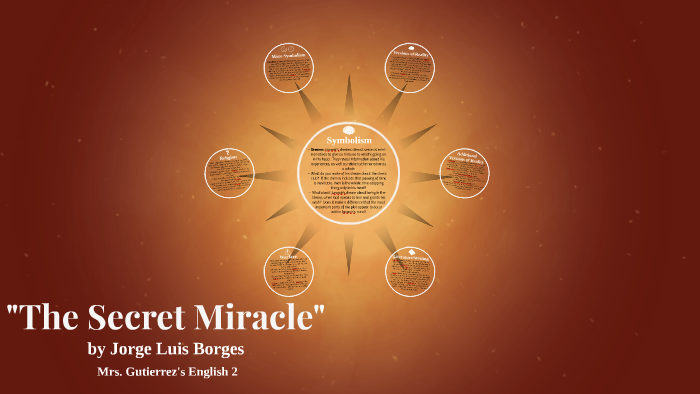

although I am not sure how much it benefits my life so I am writing a different kind of book.The world's best contemporary writers-from Michael Chabon and Claire Messud to Jonathan Lethem and Amy Tan-engage in a wide-ranging, insightful, and oft- surprising roundtable discussion on the art of writing fictionĭrawing back the curtain on the mysterious process of writing novels, The Secret Miracle brings together the foremost practitioners of the craft to discuss how they write.

Q: What can people expect from your second novel?Ī: “Something very different from “Lost City Radio.” My second book of stories in a sense had to do with politics in Latin America, but I found politics is a bit of a depressing thing to write about. There is an important conversation across the arts with all the technology now that needs to happen.” A lot of writers are passionate about music and play in bands so I found that is not that unusual. I write and do some journalism and translations. Q: You teach a bit but otherwise do you write full-time now?Ī: “Pretty much. If I sat and tried to apply what Roddy Doyle or Amy Tan said, I wouldn’t know how to do that. When I sit down to write I still don’t know what is happening. We have to construct ways to talk about writing but there are no lessons here that can directly apply. Q: Did you find any secret to writing novels?Ī: “If there is a secret to writing books it is that there is no secret. For me as a young writer without kids it was important to think about.” The demands on women writers are different from the demands on men. A male writer would list distractions as football, DVDs or the baseball score but for women writers it was their family and children. Q: What did you personally take away from this?Ī: “An important lesson for me as a male writer was hearing women writers about the gender difference.

He told me that when he was getting started he was working six days a week as a dentist and writing two hours in the morning which shows his commitment.” Alaa al Aswani, the Egyptian writer, began as a dentist. Rabih Alameddine, a Lebanese-American writer, started as a painter and transitioned from a visual language into a literary language. Q: Did all the novelists know they wanted to write from the outset?Ī: “No, there were different responses. It does make me think that in some way writers are just very active readers.” Real novelists are reading voraciously and constantly and without pause. I teach from time to time and I impress this on my students, the importance of reading before you write. A: “One thing I found most exciting is how much everyone reads.


 0 kommentar(er)
0 kommentar(er)
